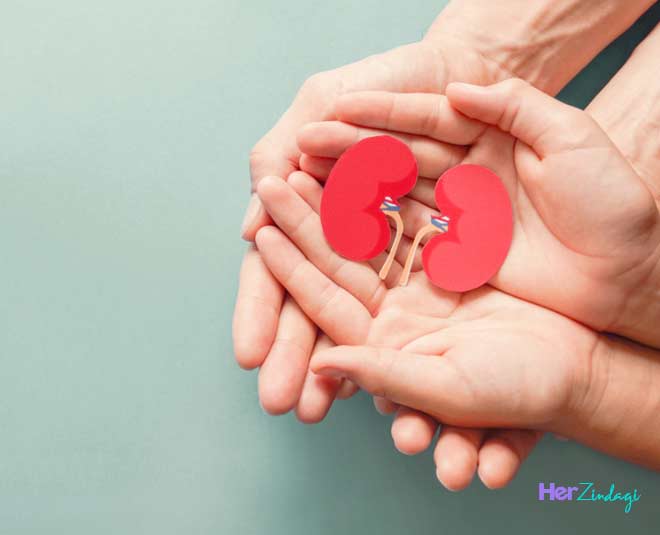
Kidneys are one of the important organs in our body. They are present in the rear abdominal cavity on each side of the spine. Receiving almost 20% of the blood from the heart, each kidney converts the waste liquids of the body to urine and then transfers it to the urinary bladder for excretion. Each kidney weighs about 140g and is vital in many different body functions. Thus, to take better care of the kidneys it is necessary for us to understand these functions along with the uses of kidneys, about which we have scarce knowledge. So, here we are to tell you all that you need to know about the 7 basic functions of the kidney.

Maintaining the pH balance or a delicate equilibrium between acid-base in the body is what kidneys primarily do. The normal pH or acid-base balance of the blood is said to be 7.35 to 7.45 which is a neutral value on the pH scale. If the value goes higher than the healthy range then the blood becomes acidic and if it slides down below the healthy range then the blood becomes basic. Kidneys expel any excess acids or bases in the body to maintain a healthy balance and also retain them when needed.
How does your body maintain the right amount of hydration? It is through the help of the kidneys. Kidneys are one of the main organs that assist the body in storing and excreting the right amount of water in the body.
They regulate the amount of urine produced to balance out the water levels and that is why your kidneys produce more urine when you drink more water and less urine when you are dehydrated.

When a person’s blood pressure is low, the kidneys release an enzyme known as renin, which then converts the angiotensinogen(produced in the liver) to angiotensinogen I. After this, when this enzyme reaches the lungs, it gets converted into angiotensinogen II which is known to constrict the blood vessels and raise the blood pressure.
If a person is suffering from high blood pressure then the kidneys produce and release more urine so that the liquid flow in the body remains controlled, which in turn controls the rise in blood pressure levels.
Extracting the electrolytes from the blood, kidneys return the rest of it back into circulation and release the leftover through urine. Thus, they are the body’s primary tools to maintain a controlled presence of electrolytes in the blood. Sodium and phosphorus are the two main electrolytes that are released or retained by the kidneys.
Kidneys help in flushing out all the water-soluble waste, toxins, and other unnecessary substances from the body. When your kidneys don’t function properly the toxin build-up causes severe health conditions.
The hormone responsible for the production of more red blood cells, which are important for the transportation of oxygen throughout the body, is produced by the kidneys and is known as erythropoietin.
Don't miss:Facing Kidney Troubles? Bid Them Goodbye With Lemongrass

Vitamin D is important for the bones and the regulation of calcium and phosphate. Kidneys convert the calcifediol into calcitriol(an active form of vitamin D) as one of their 7 basic functions.
Now that you know the important kidney functions, and that, they are not just for filtering out the waste but are involved in many different processes in the body. So, you must try to keep your kidneys healthy by maintaining an active schedule, drinking high amounts of fluids, not smoking or consuming alcohol, and eating healthy.
Don't miss:Bid Adieu To Your Kidney Troubles With These Natural Herbs
Do reach out to us in case of any queries and stay tuned to Her Zindagi for more such health-related articles.
Also watch this video
Herzindagi video
Our aim is to provide accurate, safe and expert verified information through our articles and social media handles. The remedies, advice and tips mentioned here are for general information only. Please consult your expert before trying any kind of health, beauty, life hacks or astrology related tips. For any feedback or complaint, contact us at [email protected].